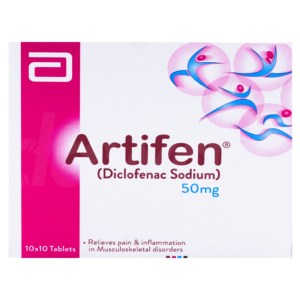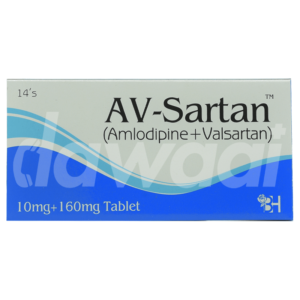Introduction
Expert Advice
Indications:
It is used to treat hypertension (high blood pressure) and heart faliure.
Pregnancy:
This medication is contraindicated in pregnancy.
Lactation:
It is suggested to use this medicine after consulting a doctor as the effect of this medicine is undetermined.
Precautions:
It is not suggested to be used in patients with kidney impairment and those undergoing surgery. Risk factors for hypotension (low blood pressure), hypertrophic cardiac myopathy (heart muscle is abnormally thick), unstable angina (chest pain) during first month of treatment, desensitisation, hyperkalaemia (high potassium level in blood), Monitor serum electrolytes.
Contraindications:
This medication is contraindicated in patients with history of angioedema (swelling of lower layer of skin) with previous ACE inhibitor therapy.
Side effects:
The use of this medicine is associated with side effects such as rash, tiredness, gout, abdominal pain, headache, mild cough, decrease in red cells and platelets, proteinuria (excess protien in urine), pruritis (unpleasant sensation of the skin), hypotension (low blood pressure), dysgeusia (distortion of sense of taste), GI upset, muscle cramps, parasthesia, dizziness, visual disturbance, tinnitus (ringing in ears), dyspnoea (difficulty in breathing), hyperkalaemia (high potassium level in blood).
Primary Uses
Hypertension
Indications
It is used to treat hypertension (high blood pressure) and heart faliure.
Side Effects
The use of this medicine is associated with side effects such as rash, tiredness, gout, abdominal pain, headache, mild cough, decrease in red cells and platelets, proteinuria (excess protien in urine), pruritis (unpleasant sensation of the skin), hypotension (low blood pressure), dysgeusia (distortion of sense of taste), GI upset, muscle cramps, parasthesia, dizziness, visual disturbance, tinnitus (ringing in ears), dyspnoea (difficulty in breathing), hyperkalaemia (high potassium level in blood).
Warnings
 Pregnancy
Pregnancy
This medication is contraindicated in pregnancy.
 Lactation
Lactation
It is suggested to use this medicine after consulting a doctor as the effect of this medicine is undetermined.
 Driving
Driving
Please avoid driving when taking this medicine as it may affect your ability to drive.
 Alcohol
Alcohol
Please avoid consuming alcohol when taking this medicine.
 Precautions
Precautions
It is not suggested to be used in patients with kidney impairment and those undergoing surgery. Risk factors for hypotension (low blood pressure), hypertrophic cardiac myopathy (heart muscle is abnormally thick), unstable angina (chest pain) during first month of treatment, desensitisation, hyperkalaemia (high potassium level in blood), Monitor serum electrolytes.
Contraindications
This medication is contraindicated in patients with history of angioedema (swelling of lower layer of skin) with previous ACE inhibitor therapy.
FAQS
Can I stop taking this medicine once my blood pressure is normal?
This medicine should not be stopped unless your doctor recommends it, and it should not be stopped abruptly. Kindly follow the instructions of your physician regarding how and when to stop taking this drug.
Can I stop taking this medicine once my blood pressure is normal?
This medicine should not be stopped unless your doctor recommends it, and it should not be stopped abruptly. Kindly follow the instructions of your physician regarding how and when to stop taking this drug.
Can I get a cough because of this medicine?
Dry cough is a side effect that is associated with this medicine. Please contact your doctor if you cannot tolerate any of the adverse effects after taking this drug.
Can I take painkillers (brufen and asprin) while taking this drug?
Paracetamol can be taken with this medicine. Please consult your doctor if you need to take any other painkiller with this medicine.
Is this medicine a blood thinner?
No, this medicine is not a blood thinner.
Indications:
This medicine is used to treat essential hypertension (high blood pressure) and heart failure.
Administration:
This medicine is mostly taken orally, preferably before meals. The dosage is dependent on the age, condition and its severity. Please consult your doctor before use. This medicine is not recommended for children.
Storage:
Please store this medicine at room temperature. Keep away from excessive light, moisture, and children. Please read the leaflet provided with the medicine for further storage guidance.
Side Effects:
The patients administered with this medicine may experience localized skin rashes, swelling, abdominal pain, fatigue, visual disturbances, paresthesia (sensation of tingling or pricking), mild cough, muscular cramps, flushing, and decrease in hemoglobin levels/platelets.
Precautions:
The patients with renal (kidney) impairment, undergoing surgery or anesthesia, risk of hypotension (low blood pressure), heart abnormalities, undergoing hemodialysis (treatment to filter wastes and excess water from your blood), cholesterol-associated abnormalities, risk of desensitization, and hyperkalemia (high potassium levels) should be cautious. Please monitor serum electrolytes during use of this medicine.
Effects on Pregnancy and Lactation:
This medicine is not recommended during pregnancy. This medicine is not recommended for nursing females.
Contraindications:
The patients with history of swelling associated with such medicines and hereditary or idiopathic swelling (swelling associated with inheritance or unknown causes) should avoid use of this medicine.
Which medicines should be avoided with Amlodidpine?
As per FDA recommendation, simvastatin dosage should be limited to 20 mg daily while taking amlodipine. Also, all the CYP3A4 enzyme inhibitors like diltiazem, ketoconazole, itraconazole & ritonavir should be avoided while taking amlodipine.
I have been experiencing swelling in hands and foot since I started using the medicine. I amconcerned whether this swelling will persist?
You don’t need to worry about the swelling, as it is one of the very common adverse effects of the drug. This will go off once you withdraw its use. But you still need to consult your physician if the condition is getting worse.
When is it safe to discontinue the medicine?
You are not advised to do so abruptly nor are you supposed to make this decision by yourself. Consult with your physician, who will most probably advise for a gradual withdrawal. This is done to avoid the chest pain and relapse of high blood pressure, which is usually observed in such scenarios.
In what forms is the medicine available?
It is available in tablet, drops and I/V (intravenous) forms.
I am a patient of dialysis and have a history of getting treated for hepatitis C too. So, is the medicine safe for me?
No, the drug is not safe for any kind of kidney or liver disease. Consult your physician for an alternative.
What is the best time to take this medicine?
It doesn’t really matter at what time of the day you take amlodipine, but it is best to take it at the exact time every day, for more even blood levels & more effectiveness of the medicine.
Why taking this medicine at night is useful?
New research shows that administering blood pressure medicines at bedtime effectively helps to reduce your risk of illness or death due to blood vessel & heart disease. Timings are important as BP follows a daily rhythm. It is high during the day & falls at nighttime.
How much does this medicine help reduce blood pressure?
It is seen that titration of amlodipine from 5-10 mg every day in patients not responding to the treatment with 5 mg dose showed significant decrease in BP.
Disclaimer
Dawaai’s intention is to make sure that it’s consumers get information that is accurate, reviewed by an expert and error-free. However, the information mentioned here should not be used as a replacement for the advice of a qualified physician. The information given here is for informational purposes only, which may not cover all possible precautions, side effects, contraindications or drug interactions. Consult your doctor and discuss your queries related to any medicine or disease.





Reviews
There are no reviews yet.